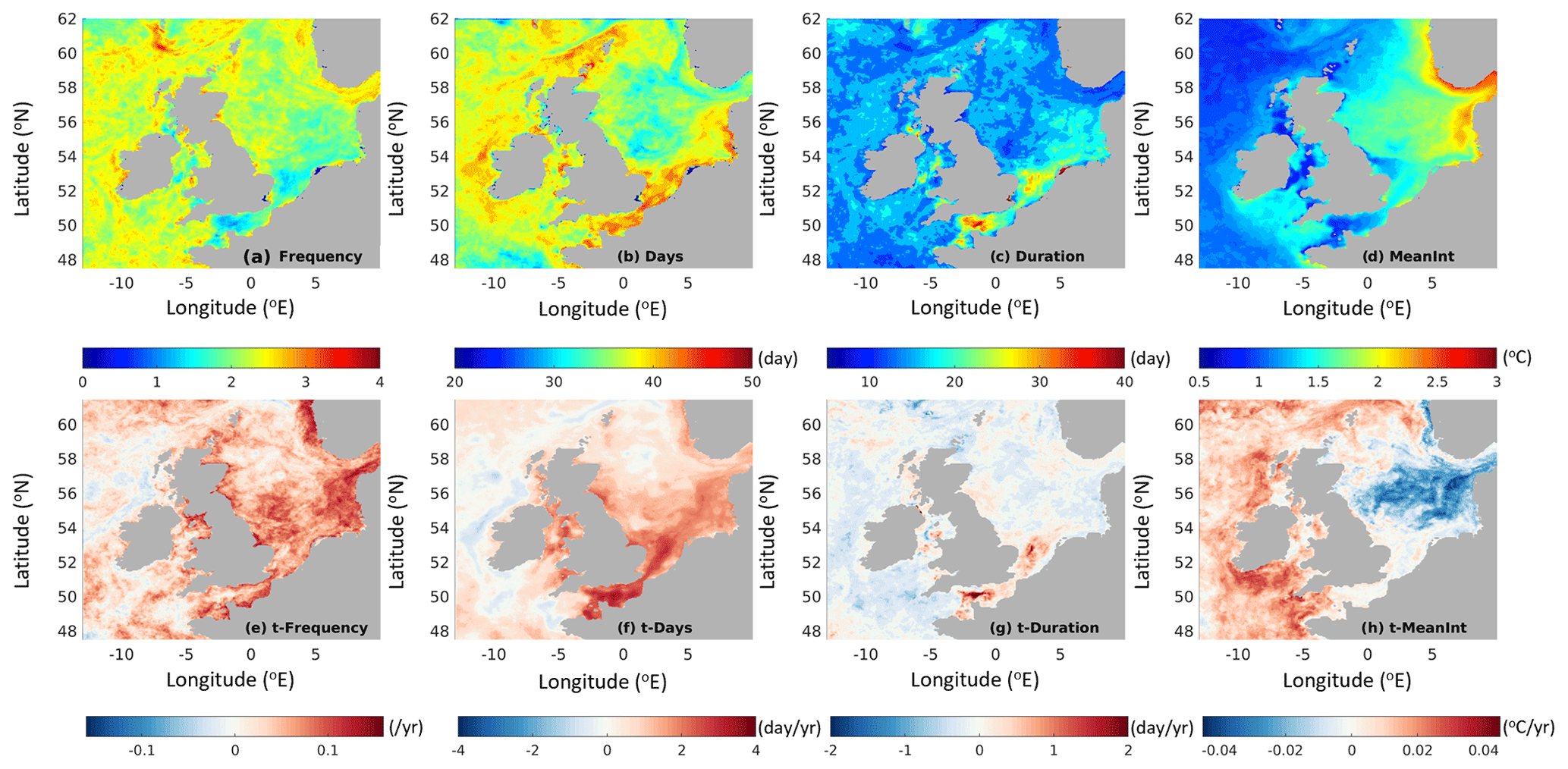In News: Why researchers studied marine heat waves more than 200m below the ocean surface
2.Bring out the relationship between climate change and the increasing frequency and intensity of marine heat waves (MHWs).
Relationship between climate change and MHWs:
● Anthropogenic influence: According to a study published in Nature Geoscience,human activities have increased the likelihood of MHWs, with approximately 87% attributed to greenhouse gas emissions.
● Increased frequency and intensity:According to Nature Geoscience, MHWs have become 50% more frequent in the past decade, with projections indicating a potential 50-fold increase by 2100.
● Reduced sea ice: The decline of sea ice, particularly in the Arctic, can disrupt ocean circulation patterns and contribute to the formation of MHWs in adjacent regions.
● Temperature anomalies: Accelerated warming has led to higher sea surface temperature (SST) anomalies, contributing to MHW occurrences.
● Ecosystem vulnerability: Marine species near thermal limits are at risk, leading to increased mortality and shifts in species distributions.
● Feedback mechanisms: Changes in ocean currents and weather patterns exacerbate local warming, complicating the relationship between climate change and marine ecosystems.
● Long-term projections: Climate models predict rising intensity and duration of MHWs under high-emission scenarios, necessitating urgent climate action.
Implications of MHWs:
● Ecosystem disruption: MHWs cause coral bleaching, altered migration patterns, and shifts in marine biodiversity.
● Economic consequences: Coastal communities reliant on fisheries and tourism face economic losses due to disrupted fish stocks.
● Biodiversity loss: Prolonged high temperatures can lead to local extinctions and reduced biodiversity.
● Public health risks: Warmer oceans may increase pathogens, impacting marine life health and food security.
● Socio-economic impact: MHWs threaten livelihoods and food security, increasing vulnerability to extreme weather events.
Thus the interplay between climate change and increasing MHWs presents a complex challenge that requires comprehensive understanding and proactive measures to mitigate its impacts on marine ecosystems and coastal communities.
PYQ
- What is sea surface temperature rise? How does it affect the formation of tropical cyclones?2024
- Bring out the relationship between the shrinking Himalayan glaciers and the symptoms of climate change in the Indian sub-continent. 2014
Source:
https://indianexpress.com/article/explained/explained-sci-tech/new-study-ocean-heat-waves-9626685/

